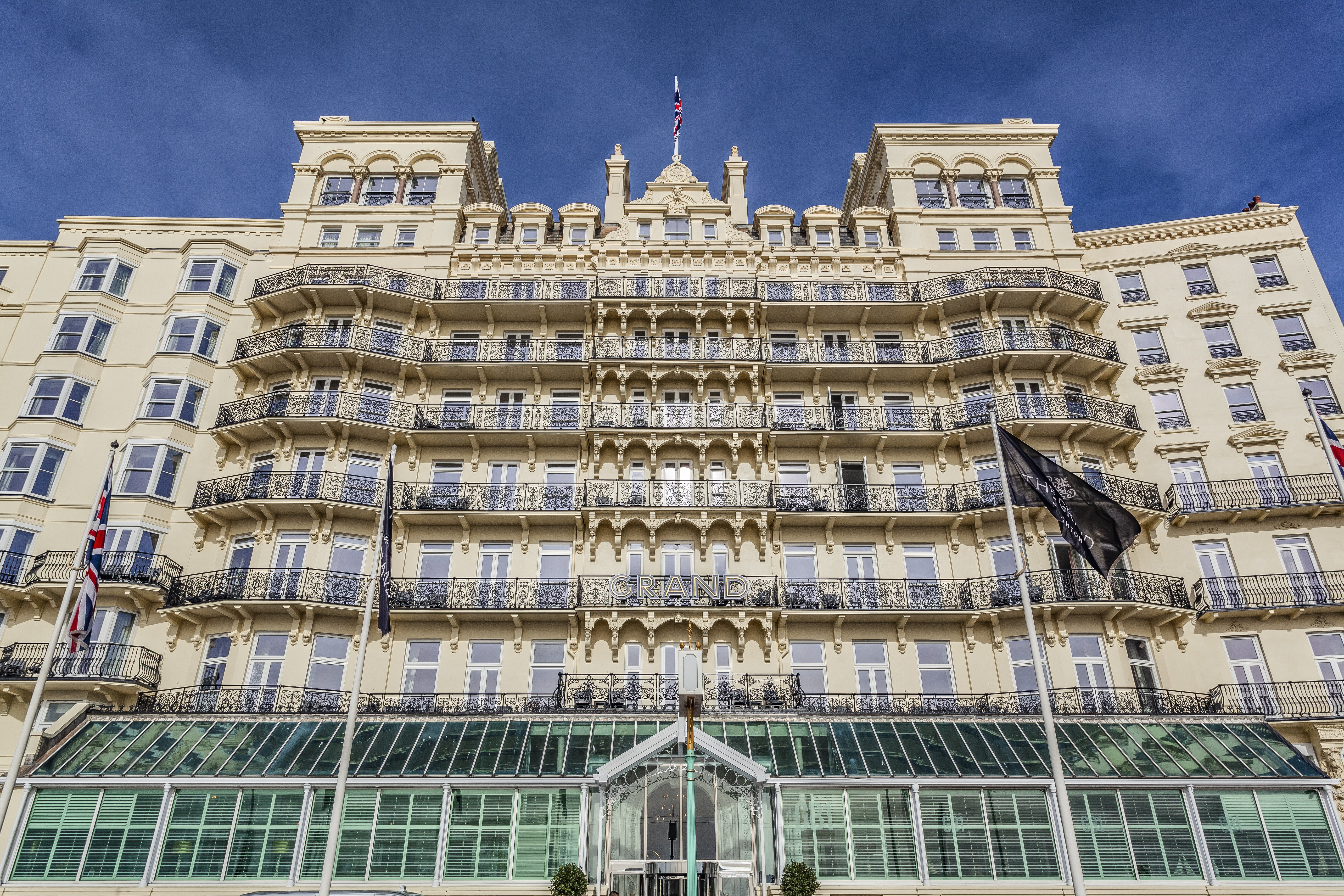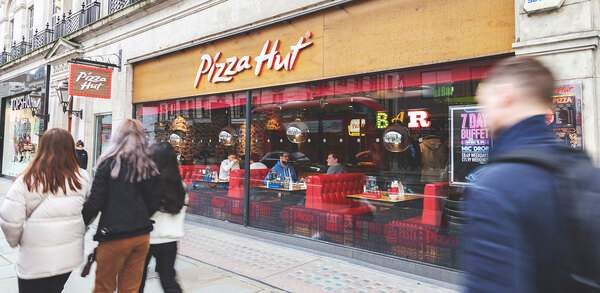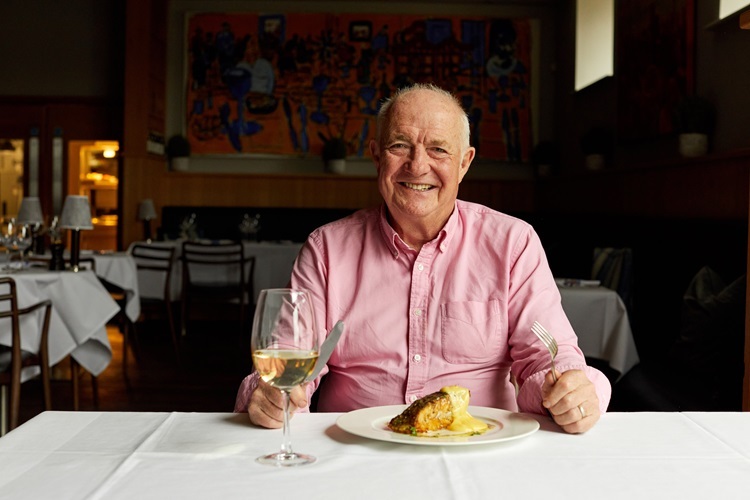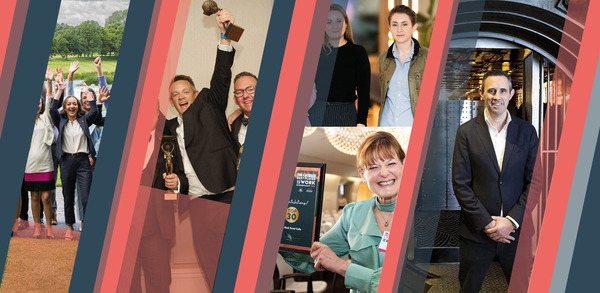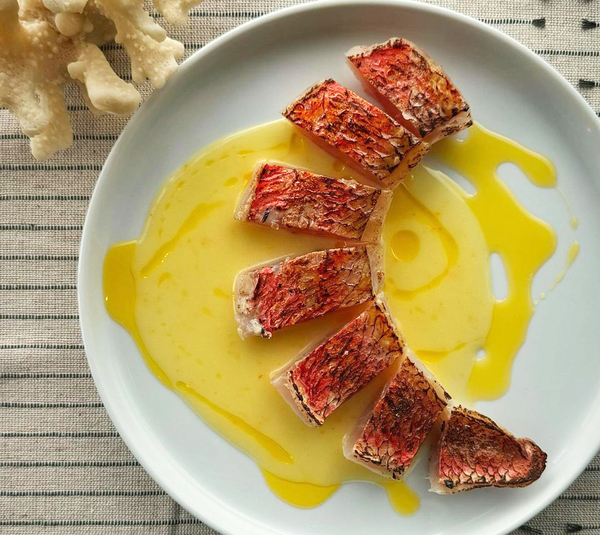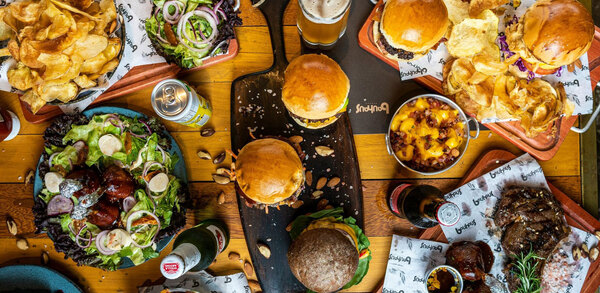Why the Grand Brighton won Employer of the Year Catey 2019
As The Caterer hunts for the Top 30 Best Places to Work in Hospitality 2020, we put a spotlight on the Grand Brighton, a luxurious seafront hotel that has been under independent ownership since 2014, to winkle out the magic that earned it the overall Employer of the Year Catey 2019. Rosalind Mullen reports
If you need proof that a successful people-focused business never stands still, the iconic 201-bedroom the Grand Brighton, the winner of this year’s Employer of the Year Catey, has just beaten its own people engagement record.
“We were trying to drive engagement over 90%, but we did that at the beginning of the year. Our latest engagement score in October was way over 95%,” says people and projects manager Andi Hirons.
She’s also confident that the score is a true reflection of staff morale. Hirons switched the surveys to April and October because she felt the previous timings of January and July led to skewed results.
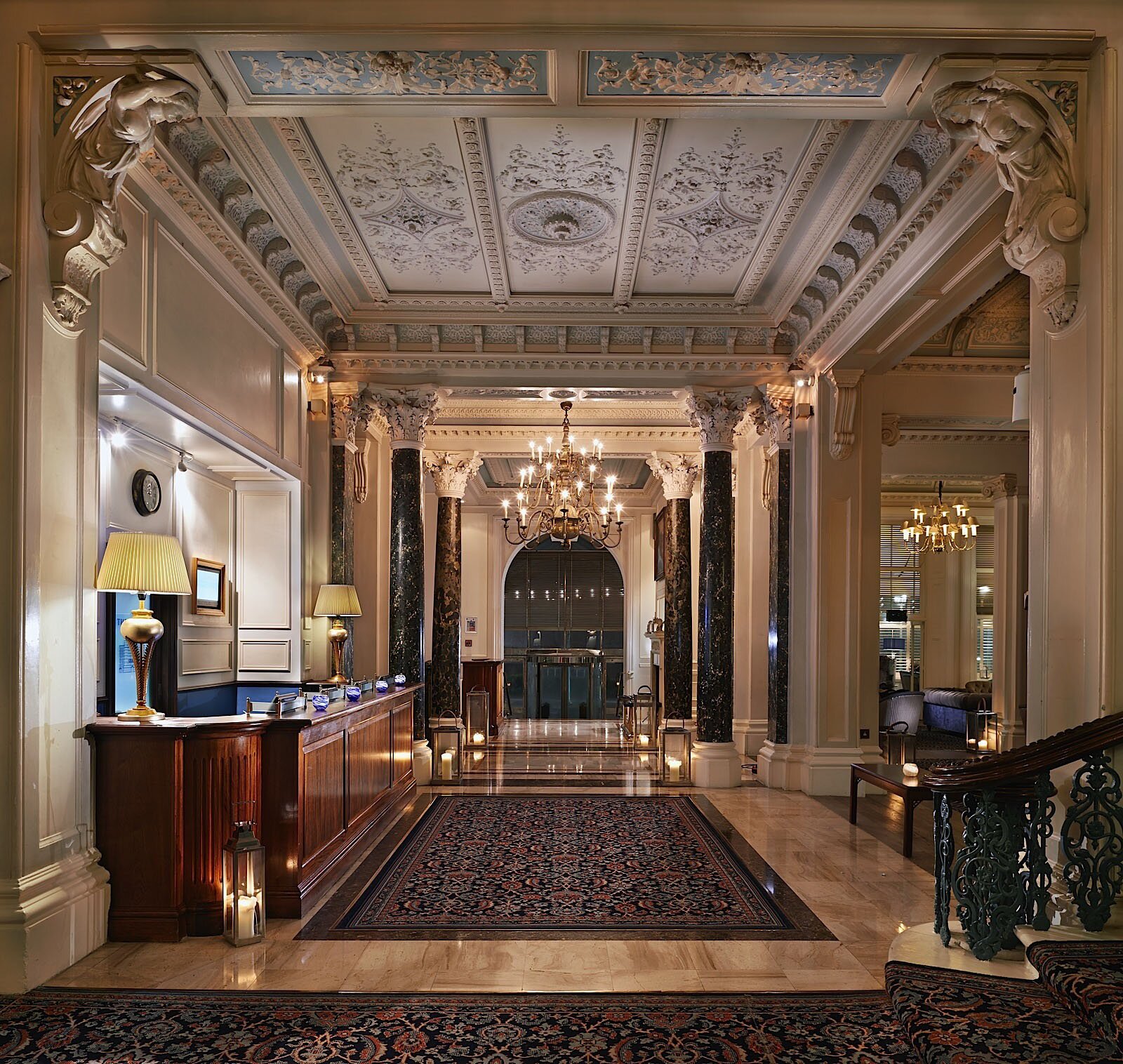
“We have the staff party in January, so everyone is happy, and July is just before we hit the highest occupancy, so we changed the dates to make sure we’re not hiding behind anything,” she explains.
General manager Andrew Mosley says the results are a record: “Our engagement scores were good, but these are our highest. In fact, I’ve run engagement surveys throughout my 26-year career, so I can draw comparisons between properties, and I can say our engagement scores are the best-ever in my career.”
The indications are that an engaged, happy team is tangible to guests. “It’s the way staff behave, their demeanour, the spirit of the place, how they speak to you, how they look after customers – you can see it is working. You can walk into some hotels and you just know something is wrong. At the Grand, you just know it is right – and our retention and engagement scores underpin my subjective views,” says Mosley.
Certainly, the evidence stacks up. Hirons measures retention of the 300-strong employees on a monthly basis, with 70% consistently notching up more than one year’s service, compared with 47% in 2014. “We will finish the year in the 70s,” she says. “I am even more proud of the statistics behind that, with 37% having served three years and 25% with five years’ service. Some 60% of the workforce are from the EU, so to retain them in this climate is an achievement.”
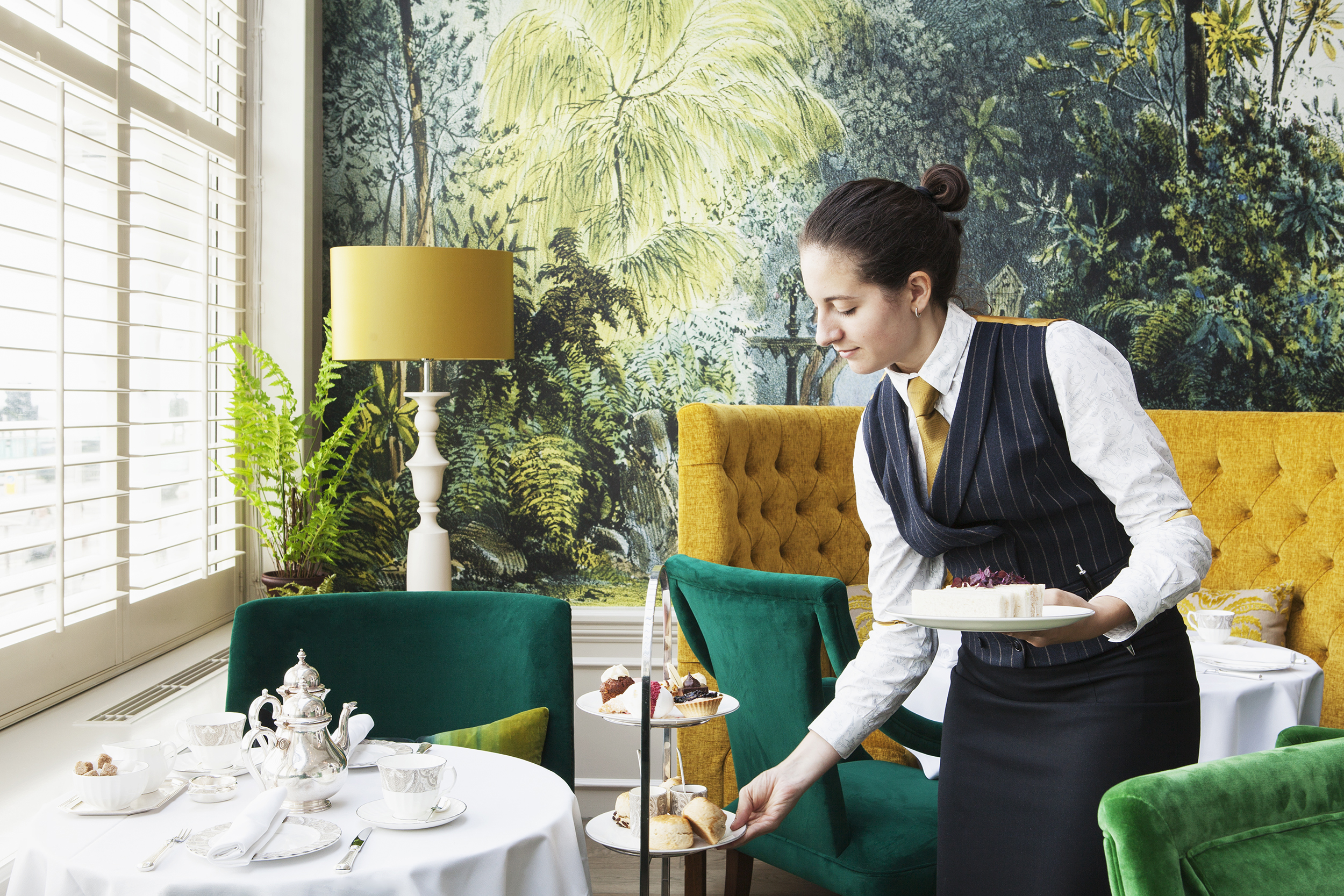
With retention figures already high, Hirons says that to drive them up would take substantial investment. “I am happy with those figures – we are not going to drive them further, but maintain them,” she says.
A sense of ownership
It’s clear that Mosley, Hirons and their teams are self-motivated, and they put this down to the independent ownership of the £17m-turnover hotel. Mosley joined the Grand as it emerged from recession in May 2010 when it was still owned by De Vere. He steered it through a £7m refurbishment in 2012, which included a new restaurant, spa, function rooms and bedrooms, and subsequently through De Vere’s sale of the hotel to independent owners Wittington Investments (run by the Weston family, who in the UK also own retailers such as Selfridges and Fortnum & Mason) at the end of April 2014.
One of the benefits of moving from corporate to family ownership is that it has given the senior leadership team flexibility. “Our owners have a broad portfolio of business so they allow us to be free-spirited and entrepreneurial,” says Mosley.
“Also, we are not bound by corporate rules so we can come up with our own ideas. But we do have to get up and make it happen ourselves. This has massively motivated us as a team because we feel accountable for what we achieve and responsible for our hotel and the people in it.”
He particularly values the fact decisions can happen quickly, allowing the senior team to take the business forward. “Corporate business structures mean things can circle and go round. That has been one of the biggest [changes] I’ve noticed about moving to an independent owner. There’s an excitement that you are really running the business – which we are,” says Mosley.
Examples of people initiatives driven by the team include the thanks and recognition app, dubbed Mo for great “Mo” ments. Employees are recognised with “Grands” for delivering exceptional hospitality, which can be exchanged for rewards such as cash, cinema tickets or spa experiences. And it all culminates at the end of the year in the annual Grand Hotel Awards to celebrate employee successes. “It was driven by Andi. The owner is pleased but the initiative has come from us,” says Mosley.
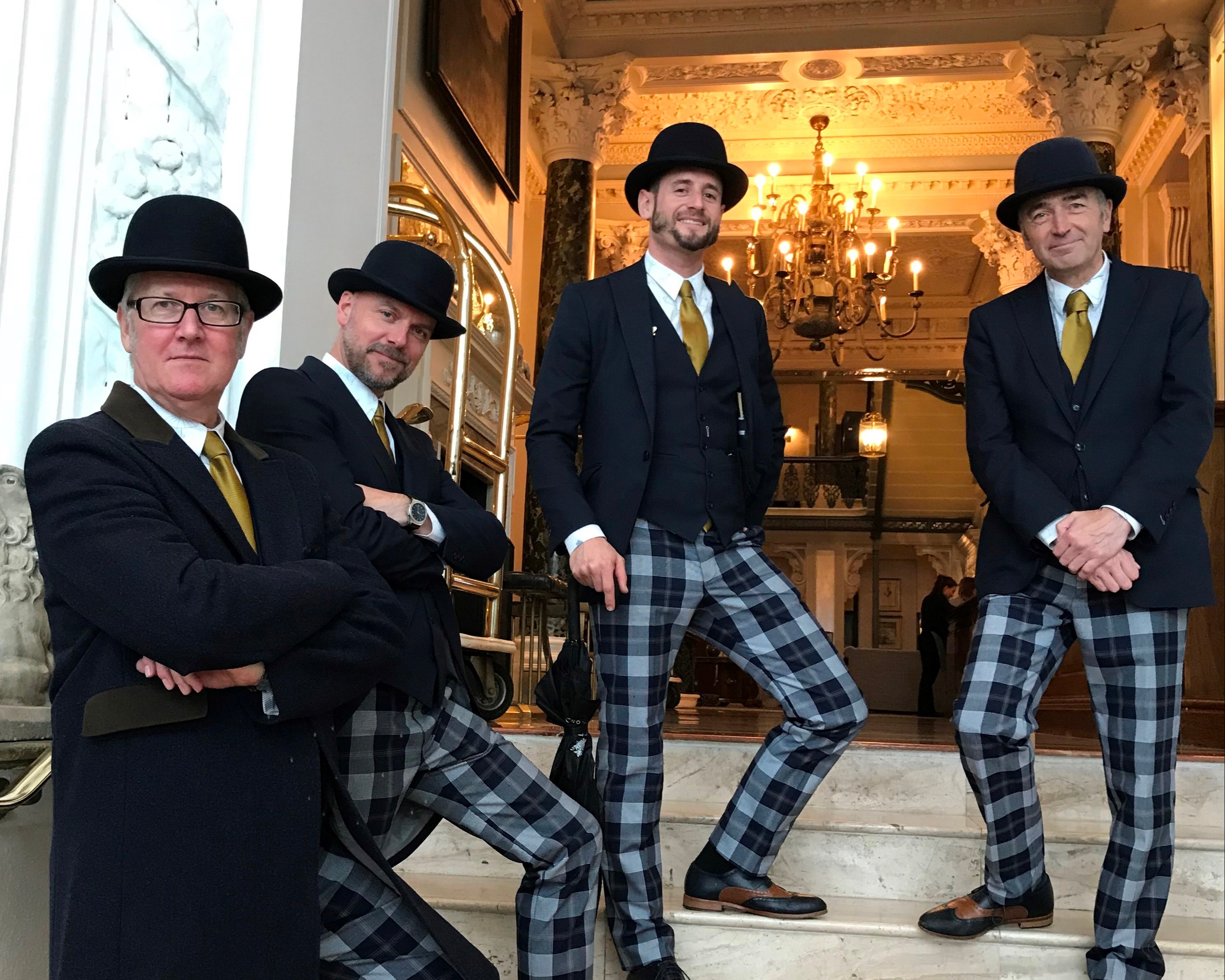
To thoroughly strengthen the people culture of a hotel, however, the owners – whether shareholders or private – need to invest in creating a strong business. Early on, Wittington Investments set about providing a multi-millionpound fund to restore the 152-year-old building. The first was back of house repairs – which don’t show a return on investment – to get the building in good order. Then followed two massive customer-facing projects in 2016. Some £3m was invested in putting air-conditioning into all rooms – no easy task with 20 bedrooms out of action at any one time – particularly in the 46 sunny front bedrooms.
And third, there was a major £3m-plus restoration of the facade, which had deteriorated, reducing the impact of the iconic property.
“These three things have shown the enormous dedication to the business,” says Mosley. “It was a significant expense. Not only did they invest in the works, but having scaffolding on the front of the building for two years meant they couldn’t sell rooms with a sea-view supplement.”
In addition, bedrooms have been freshened ahead of further refurbishment down the line, the restaurant was closed in October prior to a new venture opening in November, plus a flood in the basement created the opportunity to redevelop the spa, which will be unveiled in early 2020. “And they have looked at staff welfare and uniforms, so they are investing not just in the appearance of the business, but in the team,” says Mosley.
The importance of enjoyment As well as injecting much-needed investment, it was the change of ownership that provided an ideal opportunity to refocus on the people function. Central to that is Hirons. She joined the hotel in 2006 as a deputy general manager, but with the takeover in 2014 she opted to split her role and concentrate on her main passion: people.
“For 12 years I worked at Marriott, where there was a focus on learning and development to provide an engaging environment for the team, underpinning different roles. I was a good restaurant manager, for instance, because of the way I managed my team,” says Hirons.
Similarly, her two team members are not HR professionals. “One was a reception manager and the other was an assistant meetings and events officer,” she explains. “What makes us better is that we have a vested interest in people, not in HR practices. So our people are trained, engaged, recruited and inducted properly and their wellbeing is our focus, rather than the grievances processes or HR policies. We have worked in those roles so we understand them and that makes us a stronger team because we ‘get it’ from both the manager and the employee’s point of view.”
The culture of allowing everyone to be themselves and take pride in working at the Grand starts at the top. “What makes me happy is when work doesn’t feel like work. The three of us [in HR] feel like that. When people behind the culture feel that way it rubs off on everybody. Our colleagues in the senior leadership team enjoy work, too, and that is the foundation that gets through to the team members.”
Of course, it’s also about recruiting the right people in the first place, and with the new hotel ownership Hirons’ team have set out to develop a talent pipeline, “grown locally, retained, but not held back”. This relies on progressive development initiatives, such as bite-size learning solution Microlearn, the supervisory development programme, and the nine-month “off the job” F&B Academy.
Another is the 12-month Management Academy, which saw 40% of the first cohort of 22 growing their career internally and two becoming heads of department. With an eye on succession planning, Hirons worked with performance coaches who challenge the team to adapt to the changing business environment.
“To go from an assistant manager to managing a department representing £3m of business is a massive jump. To grow talent, we need to ensure they are technically competent and could walk into any job. Outside performance coaching I took a work down, but underlying it was a strong customer delivery focus and a good approach to the way we look after our staff. We saw the management agenda change significantly as we went to market.”
So whereas traditional hotel management meetings start with the financial headlines, the Grand’s agenda puts the profit and loss review and forecasting at fifth or sixth, following a mantra of “people, delivery, sales”.
“Our people come first, then customers, and third we talk about sales, marketing and revenue strategies. So we think about what drives revenue into the business before we talk about profitability and cost measures. That gets people thinking differently because if you start a meeting with profit and loss and it has not been a good month, it sets a tone,” says Mosley.
“If you have a good accounts team and give them the right business mix and sales numbers, they will convert to profit for you. Don’t get bogged down. Great people will deliver great service and that will make customers want to spend more,” he adds.
Mosley admits Brexit has affected the events business, but says this has been offset by a drive in independent leisure trade. Since 2012 occupancy has grown 14% and average room rate by 41%. “Brighton is good at delivering that; it is a ‘go-to’ place and the Grand is also a ‘go-to’ place. Those are our core markets,” says Mosley.
“We have found our market position. The investment was about re-establishing the Grand’s reputation. We are firmly back on the map.”
Grand results in a nutshell
- The Grand Brighton, King’s Road, Brighton www.grandbrighton.co.uk
- Owner Wittington Investments
- Number of rooms 201
- Number of staff 300
- Turnover £17m
- Grand Engage App – ditching unread paper and Facebook pages and replacing with a communication app across all levels with information on everything from payslips to training opportunities
- Think Grand team – employees from each team ensure employee ideas are shared and heard. One outcome was an overhaul of staff dining Microlearn – a flexible, bite-sized learning solution
- Supervisory development programme – some 55 graduates, with 95% securing promotions in six months and another 15 graduating this year
- Management Academy – produced 22 future managers, with 40% of the first cohort progressing, including two to head of department roles. Among the teams, there were 57 promotions or transfers in 2018, including room attendants progressing to F&B hosts and receptionists to events co-ordinators
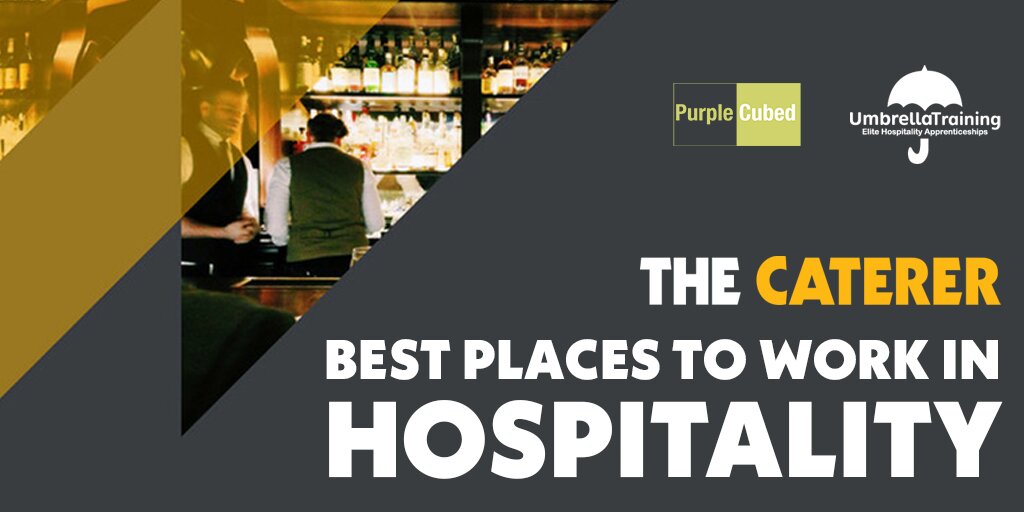
###Best Places to Work in Hospitality
Entries are open for the Best Places to Work in Hospitality 2020, the awards that celebrate the top employers in the sector. Run in partnership with Purple Cubed and sponsored by Umbrella Training, the awards highlight those who demonstrate exceptional skill at employee engagement and empower their employees to deliver fantastic results. Those entering not only benefit from all the insight from our unique employee survey, but high achievers will also feature in the Top 30 hospitality employers list, which sets a business apart as an employer of choice. Those who make the Top 30 also gain a free place at The Caterer People Summit 2020. If you want to be considered one of the Best Places to Work in Hospitality, enter today.
**Six reasons to enter **
- Be recognised as a best place to work in hospitality
- Attract the best talent; engage and retain them
- Receive insight from an employee survey
- Identify what’s important to your people and understand what really matters to your teams
- Free People Summit place for Top 30 employers
- The opportunity to be shortlisted for the 2020 Best Employer Catey



